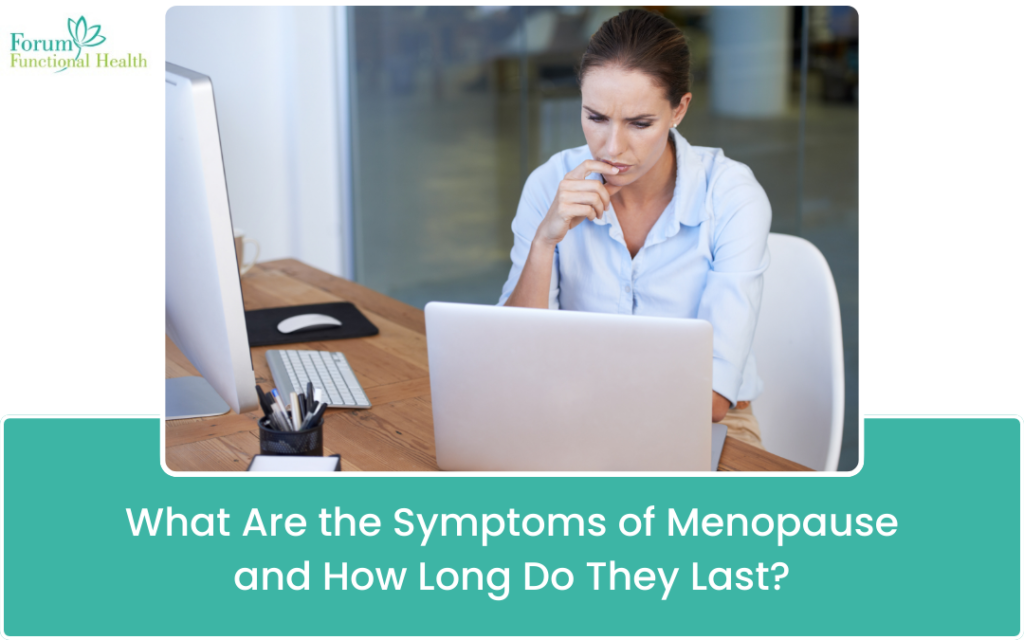What Are the Symptoms of Menopause and How Long Do They Last?

Menopause is a natural transition in every woman’s life, yet it can be a challenging experience both physically and emotionally. Understanding the symptoms and how long they last is crucial to finding the right support and treatment. At the Functional Health Center in Texas, we provide specialized care to help women navigate this life stage with confidence and ease.
Understanding Menopause: When Does It Begin?
Menopause marks the end of a woman’s reproductive years, typically occurring between the ages of 45 and 55. It officially begins after 12 consecutive months without a menstrual period. However, many women experience symptoms much earlier during perimenopause, a transitional phase that can start several years before menopause itself.
Key Symptoms of Menopause
Menopause brings with it a variety of symptoms, each affecting women differently. Some may experience mild discomfort, while others might find it disruptive to their daily life. Common symptoms include:
- Hot Flashes
These sudden waves of heat can occur at any time, leaving women feeling flushed and sweaty. Hot flashes are one of the most common and noticeable signs of menopause. - Night Sweats
Similar to hot flashes, night sweats happen while sleeping and can disrupt rest, leading to fatigue and irritability. - Irregular Periods
Before menstruation ceases completely, periods often become irregular, either skipping months or becoming heavier or lighter than usual. - Mood Swings
Hormonal changes can cause emotional ups and downs, leading to irritability, sadness, or even feelings of depression. - Sleep Disturbances
Many women report difficulty falling or staying asleep, which can be tied to night sweats, stress, or other menopause-related changes. - Vaginal Dryness and Discomfort
Declining estrogen levels can lead to vaginal dryness, making intercourse uncomfortable. This can also increase the risk of infections. - Decreased Libido
Hormonal shifts often lead to a reduced interest in sexual activity, though this varies from woman to woman. - Weight Gain and Slower Metabolism
Menopause can affect metabolism, leading to weight gain, particularly around the abdomen.
Emotional Challenges During Menopause
Menopause isn’t just about physical symptoms; it also brings emotional changes. The fluctuation in hormones can make women feel anxious, isolated, or overwhelmed. It’s essential to acknowledge these feelings and seek support, as navigating the emotional landscape of menopause can be as demanding as managing physical symptoms.
At Forum Functional Health Center, we understand the importance of holistic care. Our Menopause Treatment in Texas provides women with comprehensive support, helping them embrace this life transition with the care and compassion they deserve.
How Long Do Menopause Symptoms Last?
The duration of menopause symptoms varies greatly. For some women, symptoms begin during perimenopause and last a few months after their final period. For others, symptoms like hot flashes, mood swings, and sleep issues can persist for years. On average, menopausal symptoms last about four to five years after a woman’s final menstrual cycle. However, some women may experience symptoms for a decade or more.
Factors Affecting Symptom Duration
- Age: Women who experience menopause earlier, such as those going through surgical menopause, may deal with symptoms for longer.
- Lifestyle: Smoking, stress, and lack of exercise can exacerbate symptoms.
- Health: Conditions like thyroid disease or diabetes can also impact how menopause affects the body.
Managing Menopause Symptoms
While menopause is a natural process, there are many ways to ease the discomfort it brings. Some common strategies include:
- Hormone Replacement Therapy (HRT)
HRT can help replenish estrogen levels, reducing symptoms like hot flashes, night sweats, and vaginal dryness. It is one of the most effective treatments for menopausal symptoms. - Lifestyle Adjustments
Regular exercise, a healthy diet, and staying hydrated can make a significant difference in managing symptoms. Reducing caffeine, alcohol, and spicy foods may help alleviate hot flashes. - Emotional Support
Counseling, therapy, or joining a support group can provide emotional relief and help women connect with others going through the same experience. - Natural Remedies
Some women find relief through natural supplements, such as black cohosh, evening primrose oil, or soy isoflavones. Always consult a healthcare provider before starting any new treatment.
At the Functional Health Center in Texas, we offer personalized care plans designed to address both the physical and emotional challenges of menopause. Our expert team ensures that women receive the support they need to maintain their health and well-being during this life stage.
Why Seeking Treatment Is Important
While menopause is a normal part of aging, there’s no need to suffer in silence. Seeking professional help can significantly improve your quality of life. The Menopause Treatment in Texas provides women with tailored solutions to manage their symptoms effectively, ensuring that they can continue to live vibrant, fulfilling lives.
Conclusion: Embrace Menopause with Confidence
Menopause is not just an ending but a new beginning. Though it can be a challenging time, with the right treatment and emotional support, women can navigate this phase of life with confidence and grace. If you’re struggling with symptoms of menopause, don’t hesitate to seek help from the compassionate experts at the Forum Functional Health Center, Contact Forum Functional Health Center
Read More:- PCOS vs PCOD: What’s the Difference and Why It Matters? PCOS Treatment in Texas
